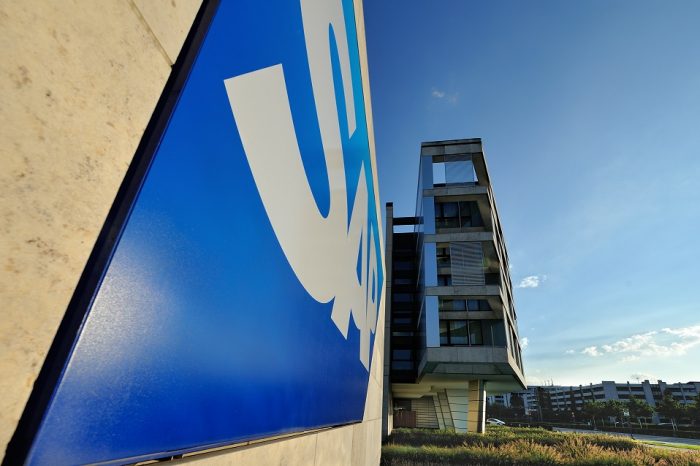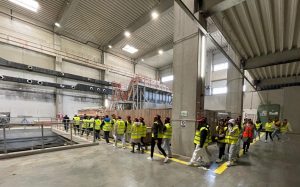Centrul de Formare APSAP: Romania is in last place in digital education. Online learning is still disregarded, and some Romanians don’t want to learn, they just want the paper that “certifies” their skills

● Romanians’ interest in digital skills development courses remains alarmingly low.
● Only 1 in 4 young people has higher education, with low interest in general learning.
● Romanians are deficient in digital skills.
● Online education is still perceived as inferior.
According to Eurostat, Romanians have little interest in developing new skills and digital abilities that would help them advance professionally, ranking last in the EU in online education. Although they enroll in training courses in various fields, some Romanians have a harmful mentality – they do not want to learn, but only want to obtain an accredited diploma, which will “certify” them of skills that they have not acquired, shows an analysis of the behavior of course consumers carried out by Centrul de Formare APSAP, the largest training and advanced training center in the country.
According to Eurostat, only 10% of Romanians with Internet access have taken some form of online education, which places Romania in last place in the EU, far from the lead held by Ireland (61% of users), the Netherlands (59%) or Finland (53%). Among the causes are the low rate of college graduates, but also the low interest in formal education, in developing skills in general and in developing digital skills, and the erroneous perception of online learning, which in Romania is disregarded, still seen as inferior to that which takes place in a physical setting.
Some students want to know the exam questions, others drop out of classes after enrolling
“Romanians want cheap courses, hunt for discounts and minimally engage in the learning process. Not only is the lack of seriousness a major problem, but it reaches absurdities: some students even ask for questions that will “fail” the exam, so that they can pass more easily. The reality is sad and outrageous: 20% of students who claim to have a bachelor’s degree do not even have a high school diploma. There are training programs that require completed university studies, and the condition is published on the course website. However, some try to fool the system, presenting instead of a bachelor’s degree a high school transcript, or a high school diploma with low grades. These attempts are not only fraud but also reflect a dangerous mentality: people do not want to learn, they just want the paper that “certifies” their skills. It’s no wonder that the Romanian educational system produces specialists “on paper”, but without real knowledge, explains Bogdan-Costin FÂRȘIROTU, president of Centrul de Formare APSAP and founder of the cursuri-functionari.ro platform.
In addition, Romanians are deficient in developing new skills because they abandon training courses. Over 30% of those enrolled drop out before the training begins, according to an analysis by Centrul de Formare APSAP conducted on a sample of over 3,000 people who enrolled in courses in 2024. Dropout most often comes when people find out that they have to submit documents proving their studies, they have to allocate real-time for theoretical and practical training, there are assessments and an exam at the end, or there is a possibility of not graduating from the course if they do not obtain the minimum passing grade.
“With such an attitude, it is no wonder that Romania is always at the bottom of Europe in education and professional development. We want high salaries, top positions, and successful careers, but we are not willing to work for them. As long as the mentality of ‘as little effort as possible for a guaranteed result’ persists, real education remains just an abstract concept for many. In addition, Romanians’ interest in digital skills development courses remains alarmingly low, and labor market data confirms this painful reality. In 2024, the most sought-after job in Romania was that of a driver, according to recruitment platforms, a clear signal that the professional orientation of Romanians is still far from the requirements of the digital economy. Centrul de Formare APSAP provides multiple programs for developing digital skills, including advanced cybersecurity courses but also modules for beginners, such as the digital skills course in Microsoft Excel, Word, and PowerPoint. Access to this program requires at least 10 completed classes but the reality of the courses is shocking: not infrequently, participants showed up without a computer, connecting to online lessons on their mobile phones, with the impression that they would be able to work in Excel… on paper. This is the real picture of digitalization in Romania: lack of access to equipment, lack of digital education, and an economy that still does not prioritize the development of these skills. Until we understand that the future means automation, IT skills, and adaptation to new technologies, Romania will continue to lag in Europe, not only in digital education but also in economic competitiveness”, adds Bogdan-Costin FÂRȘIROTU, president of Centrul de Formare APSAP and founder of the cursuri-functionari.ro platform.
According to a study conducted by the Centrul de Formare APSAP, based on a sample of over 2,500 respondents nationwide, approximately 30% of participants declared that they had an advanced or expert level of digital skills. In reality, the responses from the same study show that these skills mainly consist of “browsing and searching the internet effectively” and “using office applications”, which does not necessarily reflect an advanced level of digital expertise.
Romanians’ interest in developing new skills is correlated with the low level of education of the majority of the population. According to Eurostat, Romania ranks last in the European Union in terms of the number of young people with university degrees, with only 1 in 4 young people completing a form of higher education. At EU level, 42% of people aged 25 to 34 are university graduates.
“These realities demonstrate that, without a profound change in the perception of education and a clear strategy to stimulate digital skills, Romania will continue to remain disconnected from modern educational trends and the demands of the 21st-century labor market. Also, the poor infrastructure in rural areas is another reason why Romania has lagged behind in digital education. High-speed internet access and the devices necessary for online learning are still limited to the village, making participation in digital courses impossible for a large part of the population,” says Diana-Antonia PAVEL, Executive Director of Centrul de Formare APSAP.
Online learning, still disregarded in Romania
Online learning continues to be a controversial topic in Romania. The public between the ages of 20 and 45 is generally open to digital education and does not perceive it as inferior to traditional learning. However, people over 45 are more reluctant, considering that physical learning is the only one that offers real results. Among the reasons for this perception is the emergence and growth of the number of course providers, many unaccredited, who promise fast learning and high income without thorough training.
“Unfortunately, Romania is flooded with pseudo-courses that promise quick success and fabulous incomes, without providing real training. Many people have been fooled by webinars in which “trainers” presented them with magic recipes for getting rich. These “programs” claim to transform you overnight into an investment specialist, successful copywriter, prolific entrepreneur, or digital marketing expert, asking for amounts ranging from 200 to 5,000 euros, without having any official accreditation or recognition. The difference between quality online education and these commercial schemes is immense. Courses accredited by the Romanian state, offered by serious institutions, are essential for developing professional skills, but the lack of strict regulation has allowed educational scams to emerge,” explains Bogdan-Costin FÂRȘIROTU.
Centrul de Formare APSAP supports online education, offering advanced training and specialization courses authorized by the Ministry of Labor, Family, Youth, and Social Solidarity and the Ministry of Education and Research.
How to develop digital skills and access to online education
In a landscape where superficiality and lack of effort have become norms in online education, Centrul de Formare APSAP assumes an active role in changing this reality, based on serious, accredited education oriented towards the real development of digital skills, not on “magic recipes”.
Centrul de Formare APSAP offers structured, relevant, and accessible courses, tailored for both beginners and those who want to improve their skills. From Microsoft Excel to cybersecurity and advanced skills in public procurement, project management, labor law, occupational health and safety, vocational training, personal data protection, accounting, and interior design, the center offers real professional training, not expensive illusions.
“Our e-learning platform is modern, intuitive, and offers flexibility in the learning process, regardless of location. Training sessions are live, and the information and dialogue in the virtual amphitheater are complemented by filmed materials, interactive quizzes, and additional digital resources. Instead of creating “paper” courses, we focus on interactivity, case studie,s and practical applications, which allow learners to develop their skills in a real and effective way. We also rigorously filter applications to combat imposture. We are not a “diploma provider” and we do not accept attempts to defraud the system. The registration conditions are clear, and students are checked to ensure that they have the necessary studies for the specializations they apply to. We do not guarantee diplomas without effort. Whoever enrolls in our courses must learn, pass an exam, and demonstrate the acquired skills. We fight the “free course, guaranteed diploma” mentality and do not align with the trend of useless webinars followed by “miracle courses” that promise an income of 10,000 euros after a few hours of training. We focus on quality, not on selling illusions, and this is seen in the structure of our training programs”, explains Bianca-Florentina ZICHIL, Process Improvement Manager of Centrul de Formare APSAP.
For Romania to be closer to the European level of digitalization, the consumer mentality of online education must be changed. Centrul de Formare APSAP does this through serious courses, rigorously filtering enrollments, and creating an authentic educational environment, in which the diploma is obtained through work, not by “tricking” the system. The center’s courses are authorized by the Ministry of Labor and the Ministry of Education.













